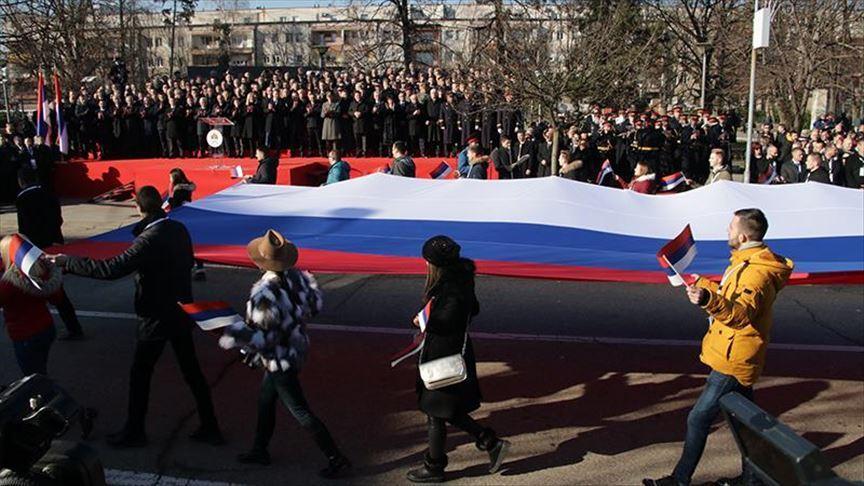Bosnian Serbs celebrate Statehood Day defying court ban
BELGRADE-Anadolu Agency

Bosnian Serbs on Jan. 9 held celebrations to mark the anniversary of the founding of the small entity -- Republika Srpska -- in defiance of Bosnia's top court ruling.
A parade in northern Banja Luka city -- de facto capital of the entity -- started the celebrations, which was supported by the senior members of the Republika Srpska government.
The city was decorated with Republika Srpska flags. Some 1,000 police officers were on duty for security during the ceremony.
Among the attendants were Serbian Prime Minister Ana Brnabic together and ministers from her Cabinet.
Also, a ceremony was held this morning with the participation of Patriarch Irinej of the Serbian Orthodox Church.
At the ceremony, Milorad Dodik, Serb member of the Presidency of Bosnia and Herzegovina, described Republika Srpska as a "state".
"The Serbs today have two states. One is Serbia and the other is Republika Srpska. Although others deny it, today we live in our own state. We see Republika Srpska as our own state," said Dodik.
Court order
Bosniak member of the Presidency Sefik Dzaferovic said that the constitutional order of Bosnia and Herzegovina was hit on Jan. 9, 1992 and the genocide during the war in Bosnia was actually a result of that.
Dzaferovic emphasized that Jan. 9 is not Republika Srpska Day, and the celebrations are against the constitution and the law.
Bosnian Serbs consider Jan. 9 to be their small state's most important holiday.
However, in late November 2015, Bosnia's Constitutional Court ruled that celebrating Dan Republika Srpska [Republika Srpska Statehood Day] could be discriminatory to other ethnic groups in the country.
The Constitutional Court of Bosnia Herzegovina was established by the Dayton peace agreement that ended the Bosnian War in 1995. It consists of two Bosniak, two Serb, two Croat and three foreign judges and its decisions are legally binding.
However, Serbs in Republika Srpska overwhelmingly passed a controversial referendum on a "national holiday" in defiance of Bosnia's highest court in September 2016.
Over 99 percent of voters in the Serb-majority territory chose to make Jan. 9 “Statehood Day” -- fueling fears the referendum could be a first step towards seeking independence from Bosnia and Herzegovina, a country torn apart by violent ethnic conflict in the 1990s.
Prosecutors also summoned Republika Srpska's then-leader Milorad Dodik to testify about the controversial referendum on his entity's “national holiday”.
















